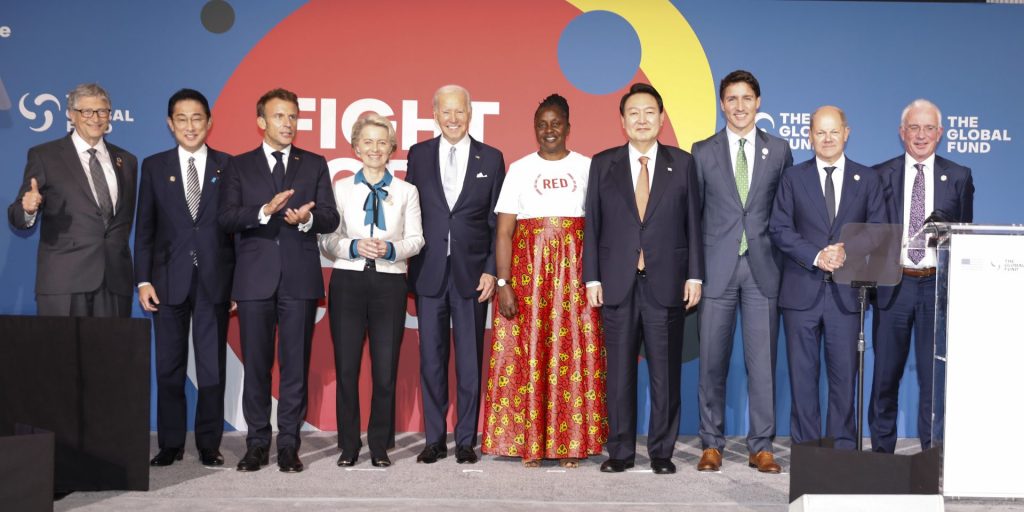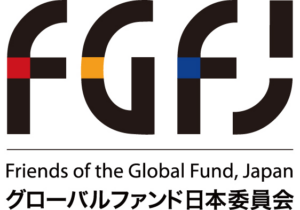The Global Fund and Japan
Japan's Role in the Creation of the Global Fund
The need for a multilateral fund to combat ongoing pandemics was first raised at the G8 Kyushu-Okinawa Summit, hosted by Japan in 2000, during which Japan introduced infectious diseases to the G8 agenda for the first time. Japan’s leadership in global health paved the way for the creation of the Global Fund in 2002, and in rallying world leaders to combat the world’s deadliest infectious diseases of AIDS, tuberculosis and malaria. Japan has been a strong supporter ever since.
The Government of Japan acknowledges global health as a vital issue that has a significant economic, social, and security impact on the international community. It recognizes the Global Fund as an important partner for advancing its health diplomacy, including the promotion of Universal Health Coverage (UHC) and emphasis on human security, and is also crucial for Japan’s own health security, especially since the worldwide spread of COVID-19.
Japan's Commitment to the Global Fund
The Global Fund operates on a unique public-private-partnership model, and the replenishment periods take place in three-year funding cycles. Since the establishment of the Global Fund, the government of Japan has been a vital partner and has contributed a total of US$5.24 billion.
From the private sector, Takeda Pharmaceutical Company, Limited has been the longest corporate contributor since 2010 for a cumulative total of JPY2 billion over the past 15 years, and was the first private company to announce a pledge of JPY350 million to the 8th Replenishment.
Recent Replenishments
6th Replenishment in 2019
Prime Minister Shinzo Abe announced Japan’s commitment of US$840 million to the Global Fund’s Sixth Replenishment at the meeting of the Sustainable Development Goals Promotion Headquarters on June 21, 2019, in connection with Japan’s initiatives in disaster prevention, health and education, based on the principle of human security and leaving no one behind. The early pledge represented a 5% increase from the previous three-year period. Japan’s pledge came just days before their hosting of the G20 Summit in Osaka, where the first joint G20 finance and health ministers meeting was held to discuss sustainable health financing to achieve UHC.

7th Replenishment in 2022
Japan’s pledge of up to US$1.08 billion was again announced ahead of the Replenishment Conference by Prime Minister Kishida during the opening ceremony of the 8th Tokyo International Conference on African Development (TICAD8) in late August. Japan’s early announcement of a nearly 30% increase in its contribution to the Global Fund since the previous replenishment, along with the US announcement of a 30% increase for its pledge in March, played a valuable role in encouraging other donor countries to follow suit. Prime Minister Kishida attended the September replenishment conference in person to announce the pledge, noting that he had been foreign minister at the time of the Global Fund’s 5th Replenishment Preparatory Meeting held in Tokyo in 2015, and expressing his expectation for the Global Fund to accelerate the fight against the three major infectious diseases as well as support health systems strengthening and UHC.
8th Replenishment in 2025
For the most recent cycle, the Global Fund’s Eighth Replenishment, Japan announced its support with a pledge of up to JPY81 billion on November 25 after the replenishment summit via the Foreign Ministry website. While this represents an approximate 20% reduction in yen from Japan’s 7th Replenishment pledge, in dollar terms, the amount equates to US$515.7 million, or a reduction of approximately 52%, from its previous pledge.
History of Japan's Pledges to the Global Fund
No Data Found
From: https://www.theglobalfund.org/en/government/profiles/japan/
Note: As Japan’s pledge to the 8th Replenishment was announced in Japanese yen, the approximate USD amount was derived by applying the Global Fund’s official exchange rate (JPY1=USD0.0063667).
Last updated December 12, 2025
